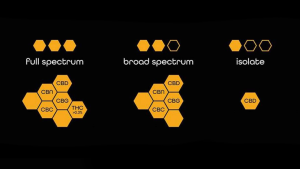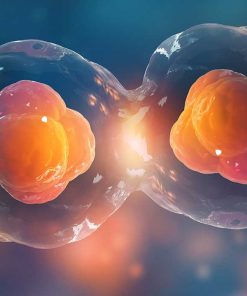Treatment only in the United States
Method
Ingredients
Cannabidiol
Cannabidiol, commonly known as CBD, is a cannabinoid molecule that is abundant in hemp plants. It is non-intoxicating and has a wide range of therapeutic uses.
Delta 9 – Tetrahydrocannabinol
Delta 9 – Tetrahydrocannabinol, commonly called THC, is the cannabinoid molecule responsible for intoxication.
Cannabinol (CBN)
Cannabinol or (CBN) helps promote better sleep quality because it is considered the most sedative.
Cannabidiolic Acid (CBDa)
Cannabidiolic Acid activates receptors, reduces nausea, decreases inhibition, activates PPARy receptors, is an anti-fibrotic, anticonvulsant, anti-inflammatory, non-steroidal anti-inflammatory, and enhances the effects of CBD by achieving higher levels of CBD at lower doses when administered along with COX-2 enzymes.
Cannabigerolic Acid (CBGa)
Inhibits aldose reductase (ALR2) May mitigate symptoms of IBD by reducing oxidizing agents in the small intestine. May activate PPARy, stimulating lipid metabolism and reducing excessive accumulation, improving insulin resistance, and reducing atherosclerosis. Inhibits COX-2, thus the production of prostaglandins, which is anti-inflammatory.
CBDa and CBGa
They are promising for COVID-19. It is now known that CBDa and CBGa have an affinity for the spike protein expressed in the COVID-19 virus. That is, they can prevent the infection of the virus that causes COVID-19 by blocking its entry into cells. By binding to the spike protein, CBDa and CBGa can prevent the virus from entering cells and causing infection. The spike protein is the same target of COVID-19 vaccines and antibody therapy.
Benefits
Chronic Pain Relief: Marijuana is widely recognized for its ability to relieve chronic pain. Conditions such as arthritis, fibromyalgia, and migraines can be effectively managed with the use of medicinal cannabis. Patients report significant pain reduction and an improvement in their quality of life.
Inflammation Reduction: The anti-inflammatory compounds present in marijuana can help reduce inflammation in a variety of diseases, including irritable bowel syndrome, psoriasis, and Crohn’s disease. This can lead to a decrease in symptoms and an overall improvement in health.
Nausea and Vomiting Relief: Marijuana is especially useful for patients suffering from severe nausea and vomiting, such as those undergoing chemotherapy treatments. THC can help reduce these symptoms, allowing patients to maintain better nutrition and quality of life during their treatment.
Sleep Improvement: Cannabinoids like THC have sedative properties that can induce sleep and improve sleep quality. This is particularly beneficial for people suffering from insomnia or sleep disorders.
Anxiety and Depression Treatment: CBD, a non-psychoactive compound in marijuana, has been shown to be effective in reducing symptoms of anxiety and depression. Patients using CBD report a sense of calm and well-being, without the side effects associated with many traditional medications.
Neuroprotection: Recent studies suggest that marijuana may have neuroprotective properties, meaning it can help protect the brain from damage and neurodegenerative diseases such as Alzheimer’s and Parkinson’s.
Support in Addiction Treatment: Medicinal marijuana is also being used to help people overcome addictions to more harmful substances, such as opioids. CBD can reduce cravings and withdrawal symptoms, facilitating the recovery process.
Results




 Español
Español










Reviews
There are no reviews yet.